Carbohydrate cravings are one of the most common nutritional challenges people face. Whether it’s a sudden urge for bread in the middle of the afternoon or a relentless desire for pasta after dinner, cravings can be confusing and frustrating. Many people find themselves asking, “Why am I craving carbs even when I’m not hungry?” or “Why do I crave bread right after I’ve eaten a full meal?” These are important questions—and the answers aren’t as simple as willpower or self-control.
In truth, carbohydrate cravings are complex and multifaceted. They can be driven by physiological needs, emotional responses, or imbalances in blood sugar and hormones. They may be linked to stress, fatigue, poor dietary habits, or even underlying metabolic conditions. Understanding the craving carbs’ meaning helps you take a more mindful, evidence-based approach to your eating habits. In this article, we’ll explore the science behind why you crave carbs, the emotional and biological forces at play, and how to stop craving carbs naturally—without extreme restriction or guilt.
You may also like: Why Am I Craving Sweets All of a Sudden? Expert-Backed Reasons and How to Stop Sugar Cravings Naturally
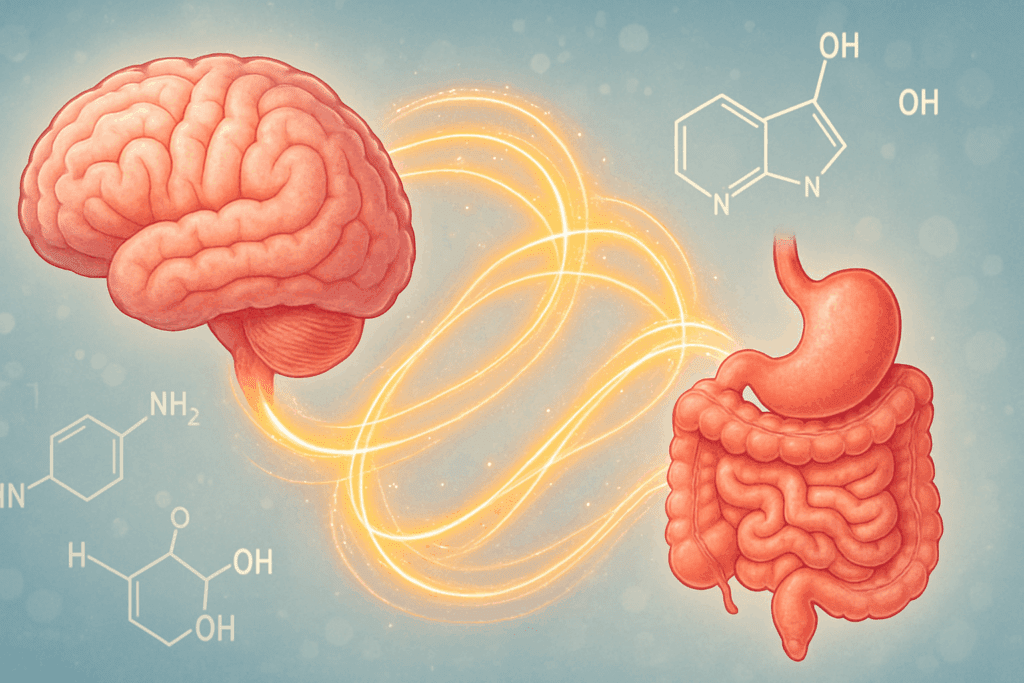
The Meaning Behind Craving Carbs
Craving carbohydrates isn’t just a matter of taste or preference—it’s often a biological signal. The craving carbs usually points to the body seeking glucose, its preferred source of energy. When blood sugar drops too low, the brain responds with a strong message: feed me carbs, and feed me now. This is a survival mechanism, and it’s perfectly natural in small doses. However, when it becomes a daily or hourly pattern, it may suggest an imbalance that needs attention.
There’s also a chemical explanation for these cravings. Carbohydrates play a key role in the production of serotonin, a neurotransmitter associated with mood and emotional regulation. When serotonin levels drop—often due to stress, depression, or fatigue—your body may seek out carbs as a quick way to boost your mood. That’s why many people report craving carbs after a long or stressful day.
Emotionally, carbs are often comfort foods. Bread, pastries, and pasta are not only energy sources but also psychological symbols of warmth, safety, and familiarity. Craving bread or sweets can be a conditioned emotional response to boredom, loneliness, or anxiety. Understanding what fuels your craving is the first step in learning how to eat healthy when craving carbs, so you can make nourishing choices without falling into cycles of deprivation or bingeing.
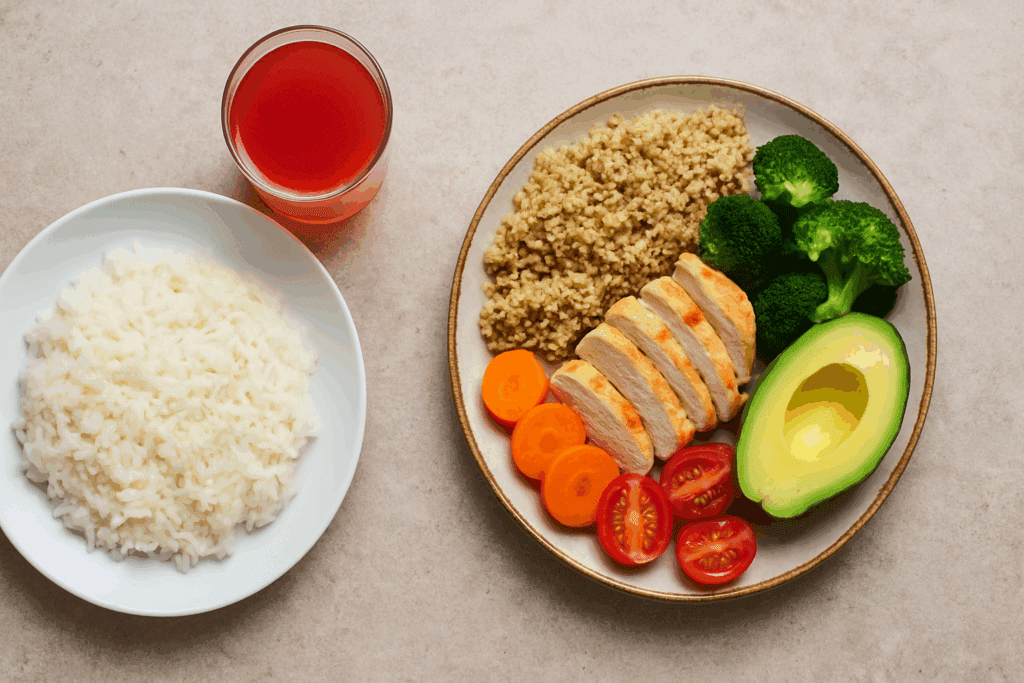
Why You Crave Carbs After Eating
One of the most confusing experiences is when you crave carbs after food. You’ve just finished a full meal—so why are you suddenly dreaming about cookies or a second helping of rice? This phenomenon is surprisingly common, and it often relates to how your meal was structured.
Meals lacking in protein, fiber, and healthy fats tend to digest quickly, leading to a blood sugar spike followed by a rapid drop. This crash signals your brain to look for quick energy, which usually means more carbohydrates. As a result, you crave something sweet or starchy even if your stomach is technically full. To prevent this, build meals with balanced macronutrients that digest more slowly and keep blood sugar stable.
Another common culprit is emotional eating. For many people, the end of a meal triggers a psychological pattern associated with dessert or snacking—something sweet to close out the experience. This routine can turn into a deeply ingrained habit, one that feels like a real craving even when you’re not physically hungry. Learning to break this cycle means practicing mindfulness, listening to your body, and exploring what that urge for more food really means.
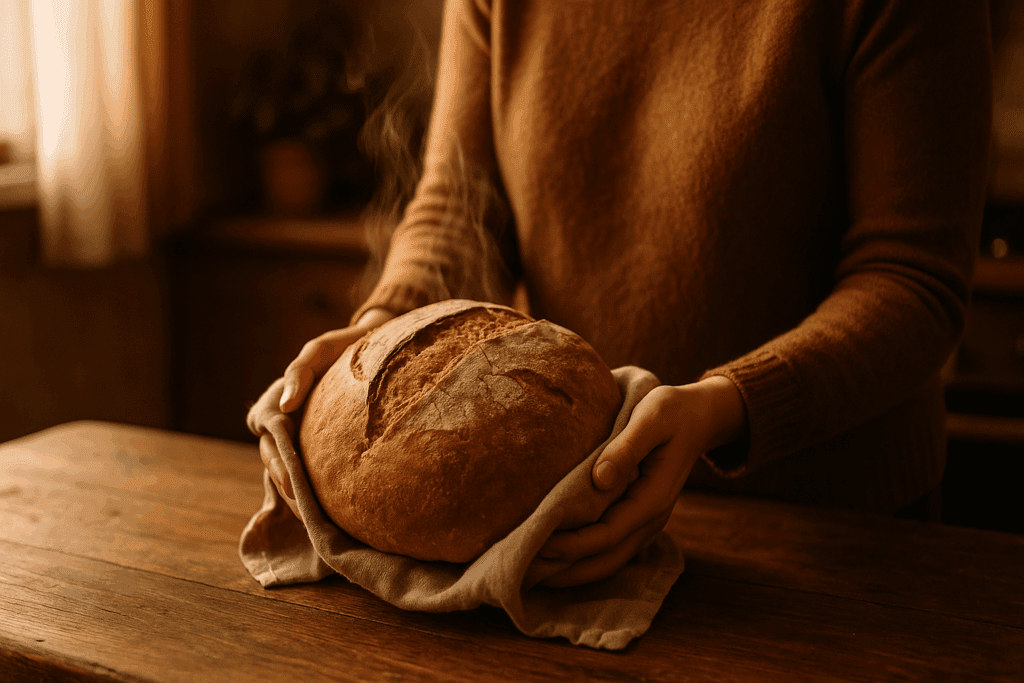
Why Bread Is a Common Craving
Among the many carbohydrate-rich foods available, craving bread is especially common. Bread is warm, familiar, and often associated with emotional comfort. It also breaks down rapidly into glucose, providing fast energy. This combination of psychological and physiological reward makes bread one of the most craved foods in modern diets.
But what does it mean if you crave bread all the time? For some, it’s a sign of a nutrient-deficient diet. If your meals are too low in carbohydrates, your body might respond with intense cravings as it tries to meet its energy needs. Others might experience these cravings due to habit or emotional reliance—using bread to cope with stress, sadness, or boredom.
Sometimes, craving bread is a signal that your diet lacks enough complex, fiber-rich carbs. If you’ve cut out grains entirely or are eating a very low-carb diet, your body may be pushing back. Rather than resisting the craving altogether, try incorporating healthier carb options like whole grain toast, sweet potatoes, or legumes. These foods can satisfy your body’s needs without triggering blood sugar spikes or emotional over-reliance on processed white bread.
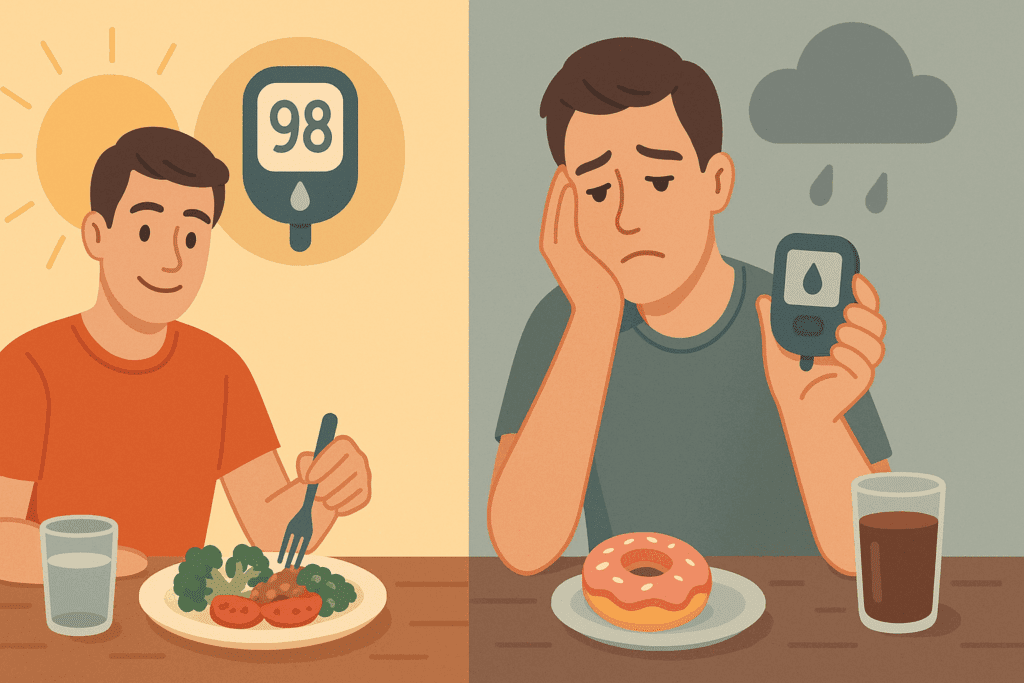
Could Carb Cravings Signal a Health Issue?
If you’re frequently asking yourself, “Why am I craving carbs?” or “Is craving carbs a sign of diabetes?” you’re right to wonder. While most cravings are harmless, some can point to deeper issues. For example, frequent, intense carbohydrate cravings—especially those accompanied by fatigue, mood swings, or excessive thirst—may signal insulin resistance or prediabetes.
In people with insulin resistance, the body doesn’t respond properly to insulin, so glucose stays in the bloodstream rather than entering cells. This leads to increased hunger and a constant craving for quick fuel. Carbohydrate cravings in this context are not just habits—they’re physiological responses to metabolic dysfunction. If you’re concerned, it’s important to speak with a healthcare provider and consider checking your blood glucose levels.
That said, most cravings don’t necessarily mean you have a medical condition. They are often the result of lifestyle patterns: irregular meals, lack of sleep, chronic stress, or over-restriction. Understanding whether your cravings are routine, emotional, or potentially medical allows you to respond appropriately and take back control of your eating habits.
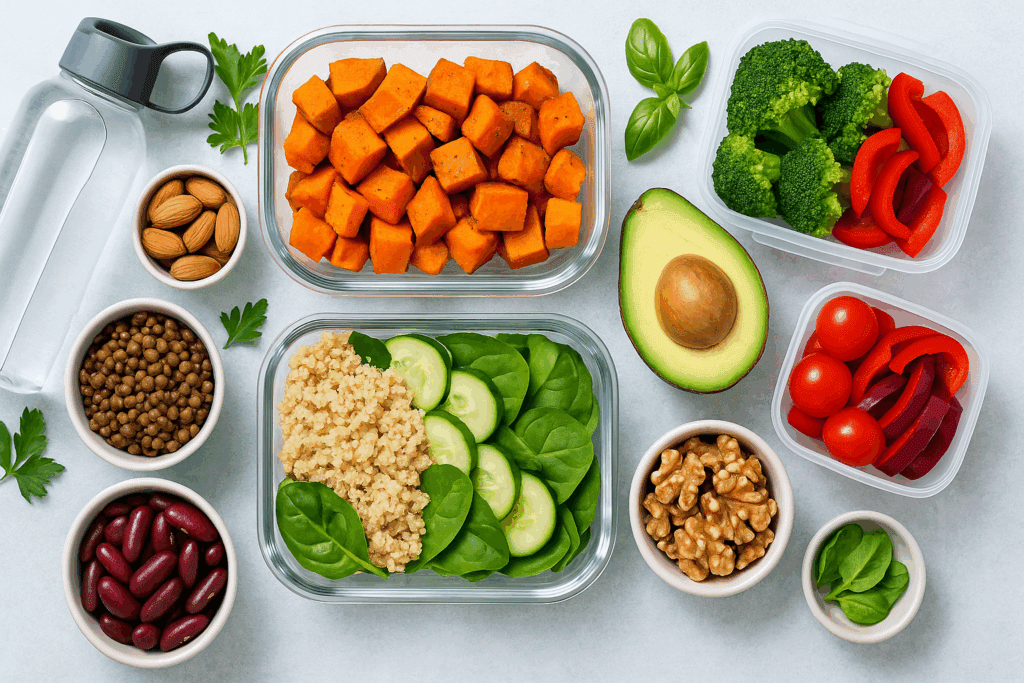
How to Eat Healthy When Craving Carbs
Learning how to eat healthy when craving carbs isn’t about cutting carbs out of your life. In fact, that approach often backfires. Instead, the goal is to choose the right kinds of carbohydrates—those that digest slowly, provide fiber, and nourish your body long-term.
Whole food sources like oats, lentils, quinoa, brown rice, beans, and sweet potatoes are excellent choices. They provide lasting energy without causing the blood sugar rollercoaster that often leads to cravings. Pairing these carbs with protein (like tofu, legumes, or Greek yogurt) and healthy fats (like avocado or nuts) slows digestion and improves satiety.
Mindful eating also plays a critical role. When you take time to truly experience your meals—chewing slowly, tuning into hunger and fullness signals, and eating without distraction—you become more attuned to your body’s real needs. This makes it easier to recognize when a craving is about physical hunger versus emotional comfort, giving you more power to choose your response consciously.
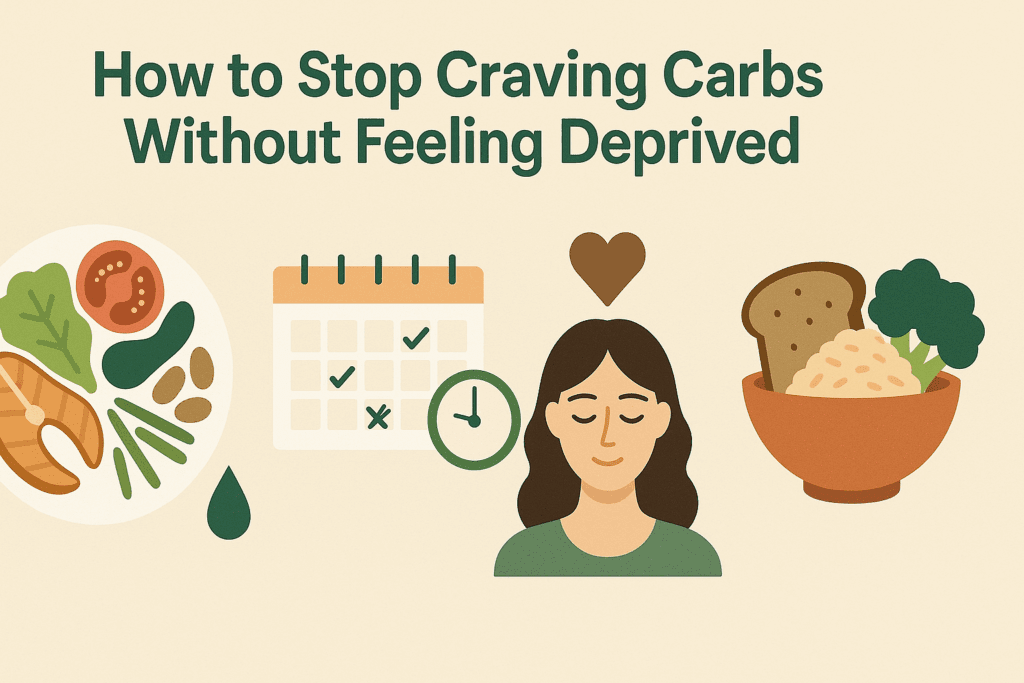
How to Stop Craving Carbs Without Feeling Deprived
One of the biggest challenges people face is figuring out how to stop craving carbs without resorting to extremes. The key is nourishment, not punishment. Begin by ensuring you’re eating enough throughout the day. Skipping meals or eating too little can trigger rebound cravings and lead to overeating later.
Balance your meals with a mix of macronutrients. Carbohydrates alone won’t keep you full, but carbs combined with fiber, fat, and protein will. Focus on foods that digest slowly and keep your blood sugar steady—like roasted vegetables with hummus, steel-cut oats with flax seeds, or a veggie-packed grain bowl with tahini dressing.
Emotional awareness is also essential. Ask yourself: “Am I actually hungry, or am I stressed, bored, or lonely?” Often, what we really crave is rest, connection, or emotional release—not food. Finding non-food strategies to meet those needs, such as journaling, taking a walk, or calling a friend, can make a significant difference in how you respond to cravings.

How to Control Carb Cravings with Lifestyle Shifts
Controlling carbohydrate cravings long-term requires more than just dietary tweaks—it means evaluating your overall lifestyle. Sleep, for instance, has a huge impact. When you’re sleep-deprived, your hunger hormones become imbalanced, leading to stronger cravings for quick energy sources like sugar and starch.
Stress management is equally important. Chronic stress increases cortisol, which in turn increases appetite—especially for high-carb foods. Daily habits like deep breathing, mindfulness meditation, and moderate physical activity can reduce stress and lower the intensity of cravings. Building stress resilience makes it easier to curb carbohydrate cravings naturally.
Physical activity also improves insulin sensitivity, making your body more efficient at using glucose for energy. When your metabolism works well, cravings decrease. Something as simple as a brisk daily walk or strength training session a few times per week can make a noticeable difference in your cravings, mood, and energy levels.
Frequently Asked Questions (FAQ): Understanding and Managing Carbohydrate Cravings
1. Can emotional eating habits influence why I crave carbs so frequently? Absolutely. Emotional eating is one of the lesser-discussed reasons behind carbohydrate cravings. Many people associate carb-heavy foods like bread, pasta, and sweets with emotional comfort or reward. When we feel stressed, lonely, or even celebratory, reaching for carbs becomes a reflex that temporarily boosts serotonin. This can evolve into a psychological dependency, where the craving carbs meaning is more about soothing emotions than satisfying physical hunger. Over time, this connection reinforces itself, making it difficult to tell whether you’re hungry or simply seeking emotional relief.
2. Why do I crave carbs after food even if I’m already full? Craving carbs after food is often a result of imbalanced meal composition. Meals that are low in fiber, protein, or healthy fats digest too quickly, causing blood sugar levels to rise and fall rapidly. This drop in blood glucose may lead to post-meal cravings, even if you’ve consumed enough calories. Another reason could be habit formation—many people are accustomed to ending meals with something sweet, which triggers a learned response. This is why it’s essential to structure meals thoughtfully when learning how to eat healthy when craving carbs.
3. Is craving carbs a sign of diabetes or another underlying health issue? While not all carb cravings indicate illness, frequent and intense carbohydrate cravings can sometimes be early signs of insulin resistance or metabolic dysfunction. When the body becomes less responsive to insulin, glucose doesn’t enter the cells efficiently, prompting the body to signal for more carbohydrates. Asking “is craving carbs a sign of diabetes” is valid, especially when cravings are accompanied by fatigue, increased thirst, or unexplained weight changes. However, only a medical professional can provide an accurate diagnosis based on lab results and clinical evaluation.
4. Why am I craving bread specifically, and not other carbs? Craving bread is particularly common due to its unique combination of texture, quick digestibility, and cultural association with comfort. Unlike whole grains or legumes, bread—especially white bread—has a high glycemic index, meaning it rapidly raises blood sugar. This fast energy can create a temporary high followed by a crash, triggering repeated cravings. Emotional memory also plays a role: if bread was a staple in your upbringing, your brain may link it with warmth, safety, or nostalgia. Understanding why you crave bread can help you explore satisfying alternatives like whole-grain options that curb carbohydrate cravings more sustainably.
5. How do stress and sleep deprivation amplify carbohydrate cravings? Chronic stress increases cortisol levels, which can heighten appetite and increase the likelihood of craving high-energy foods like carbs. Similarly, poor sleep disrupts the hormones ghrelin and leptin, which regulate hunger and satiety. When you’re sleep-deprived, you’re more likely to crave carbs as a quick energy fix, especially in the form of sugar or refined starches. This helps explain why you might crave carbs after food during stressful or sleepless periods. Managing stress through meditation and prioritizing consistent, quality sleep can significantly help curb carbohydrate cravings.
6. What are some advanced strategies for how to stop craving carbs without going low-carb? One approach is carb cycling—alternating between higher and lower carbohydrate days based on activity level. This method allows the body to use carbs efficiently without triggering chronic cravings. Another strategy involves increasing resistant starches like green bananas or cooled potatoes, which support gut health and provide longer-lasting satiety. Additionally, engaging in high-intensity interval training (HIIT) improves insulin sensitivity, making it easier to metabolize carbs without crashing. If you’re wondering how to stop craving carbs without extreme diets, combining these techniques with mindful eating practices can be remarkably effective.
7. Are certain nutrient deficiencies linked to carbohydrate cravings? Yes, several micronutrient deficiencies can indirectly fuel cravings for carbs. For instance, low levels of magnesium can affect blood sugar regulation, while a deficiency in chromium may reduce insulin efficiency. Inadequate intake of B-vitamins, particularly B6 and B12, can also impact mood and energy, driving cravings for quick fuel sources like bread and sweets. If you’re frequently asking yourself, “why am I craving carbs or sugar all the time,” it may be worth evaluating your micronutrient intake with a nutritionist. Targeted supplementation may help reduce cravings by restoring metabolic balance.
8. Can social environments make it harder to control carb cravings? Absolutely. Social cues heavily influence eating behavior, and environments saturated with carb-rich foods can make it harder to resist cravings. Office snacks, holiday gatherings, or restaurant outings often revolve around refined carbs, making it easy to indulge mindlessly. Over time, this can reinforce habits that are hard to break. Being proactive—such as eating a balanced snack before events or practicing mindful decision-making—can help you regain control. Learning how to control carb cravings in social situations is about preparation and being in tune with your true hunger cues.
9. Why do we crave carbohydrates more during colder months or seasonal transitions? Seasonal changes can influence neurotransmitter levels and energy needs, which in turn affect food cravings. During colder months, serotonin production tends to dip due to less sunlight exposure. As a result, we may turn to carbohydrates to boost our mood naturally. This seasonal pattern helps explain the rise in craving bread and starchy comfort foods during winter. Furthermore, our bodies may naturally increase appetite to conserve warmth and energy, leading to more intense cravings. Recognizing these patterns helps in developing seasonal strategies to curb carbohydrate cravings mindfully.
10. How can mindful eating practices help curb carbohydrate cravings long-term? Mindful eating teaches us to recognize the difference between genuine hunger and emotionally driven cravings. By slowing down and savoring each bite, we become more attuned to fullness cues and less likely to overeat. Mindfulness also builds awareness around triggers—whether emotional, environmental, or physical—that lead to cravings. When you practice mindful eating regularly, you’re less reactive to sudden urges and better equipped to make nourishing choices. Ultimately, this practice is one of the most sustainable ways to curb carbohydrate cravings without relying on rigid rules or deprivation.
Conclusion: Curb Carbohydrate Cravings Naturally and Mindfully
If you’ve ever wondered, “Why am I craving carbs?” or asked, “How do I stop craving bread and sugar every day?” you’re not alone. Carbohydrate cravings are part of the human experience, but they don’t have to control you. By exploring the biological, emotional, and nutritional factors behind your cravings, you can respond with insight instead of impulse.
You now know that craving carbs after food may be due to blood sugar imbalance or incomplete meals. You’ve learned that craving bread can stem from both emotional conditioning and a genuine need for energy. You’ve seen that in some cases, carbohydrate cravings may even point to deeper metabolic concerns—like insulin resistance or prediabetes—and should be discussed with a healthcare provider.
Most importantly, you’ve discovered that the best way to manage cravings is not by cutting out carbs altogether, but by choosing nutrient-dense, whole food sources and supporting your body through sleep, stress management, and mindful eating. When you learn how to eat healthy when craving carbs and listen to your body with compassion, you take the first steps toward a more balanced, sustainable relationship with food.
You don’t need to fight your cravings—you need to understand them. And when you do, you can curb carbohydrate cravings naturally, live with more energy, and build habits that nourish both your body and your mind for the long term.
Was this article helpful? Don’t let it stop with you. Share it right now with someone who needs to see it—whether it’s a friend, a colleague, or your whole network. And if staying ahead on this topic matters to you, subscribe to this publication for the most up-to-date information. You’ll get the latest insights delivered straight to you—no searching, no missing out.
Further Reading:
How To Stop Your Cravings for Carbs
How do you manage food cravings?
Disclaimer
The information contained in this article is provided for general informational purposes only and is not intended to serve as medical, legal, or professional advice. While NewsHealthWatch strives to present accurate, up-to-date, and reliable content, no warranty or guarantee, expressed or implied, is made regarding the completeness, accuracy, or adequacy of the information provided. Readers are strongly advised to seek the guidance of a qualified healthcare provider or other relevant professionals before acting on any information contained in this article. NewsHealthWatch, its authors, editors, and contributors expressly disclaim any liability for any damages, losses, or consequences arising directly or indirectly from the use, interpretation, or reliance on any information presented herein. The views and opinions expressed in this article are those of the author(s) and do not necessarily reflect the official policies or positions of NewsHealthWatch.

